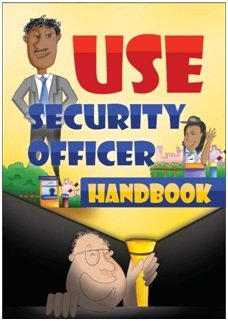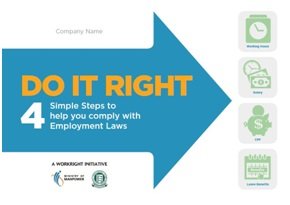For the first time ever, Singapore has won the first place in the 2015 United Nations Public Service Awards (UNPSA), in the category of “Promoting Whole-of-Government Approaches in the Information Age”, for the Asia-Pacific region. The award recognises the Ministry of Manpower (MOM) and the Central Provident Fund Board (CPFB)’s achievements in raising national awareness of and compliance with employment laws through the WorkRight initiative (“WorkRight”).
Launched in September 2012, WorkRight aims to ensure that workers, particularly the more economically vulnerable groups such as low-wage workers, enjoy their basic employment rights under the law. This is achieved through a two-pronged approach covering education and enforcement.
Use of traditional outreach channels and creative engagement platforms
Public education efforts under WorkRight leveraged a mix of communication channels to raise awareness of the employment rights messages to the target audience. This includes traditional outreach channels, such as print, broadcast, social and digital media, and creative engagement platforms, such as flash mob performance of a live musical performance which weaved employment rights message into a colloquial song and dance. WorkRight also produced educational materials targeted at both employees and employers. For example, a comic book to educate security officers about their employment rights was co-produced with the Union of Security Employees. For employers, the "WorkRight Self-Help Toolkit" is a resource for employers to better identify and self-rectify areas of non-compliance with the employment laws. (More information about the UNPSA and WorkRight’s public education efforts can be found in Annex A)
MOM and CPFB also worked hand-in-hand with partners such as the Singapore National Employers Federation, National Trades Union Congress, Community Development Councils and self-help groups1 in community engagement initiatives, such as job fairs and employer briefing sessions, to raise workers' and employers' understanding of their employment rights and obligations.
To complement public education efforts, proactive inspections under WorkRight increased ten-fold (from 500 to 5,000) a year. These inspections are aimed at ensuring employers comply with the employment laws, rather than penalising them.
1 Examples of self-help groups that MOM and CPFB worked with include the Chinese Development Assistance Council (CDAC), Council for the Development of Singapore Malay/Muslim Community (MENDAKI), and Singapore Indian Development Association (SINDA).
WorkRight benefitted more than 42,000 workers
As of 1 Apr 2015, WorkRight has benefitted more than 42,000 Singaporeans; of which, more than half were low-wage workers. These workers now enjoy their statutory entitlements such as timely payment of salary, CPF contributions or payment of overtime allowance. WorkRight has also helped employers better understand their rights and obligations. 9 out of 10 employers from sectors where non-compliance tend to be higher2 are now found to be complying with employment laws – up from 7 out of 10 in 2013.
Mr Lim Swee Say, Minister for Manpower commented, "I am proud of the efforts put in by our officers, and the collaborative efforts of the tripartite partners in reaching out to our workers, especially the many lower wage workers who may not know their rights. We will continue to explore new and effective ways to serve our public better, from policy design, to service delivery and public engagement so as to achieve a better outcome for all."
MOM and CPFB will be receiving the award at the 2015 United Nations Public Service Forum, Day and Awards Ceremony in Colombia from 23-26 June 2015. The full list of winners is in Annex B.
2 Non-compliance with the Employment Act and the CPF Act tend to be higher in sectors such as food & beverage, retail, security and cleaning.


